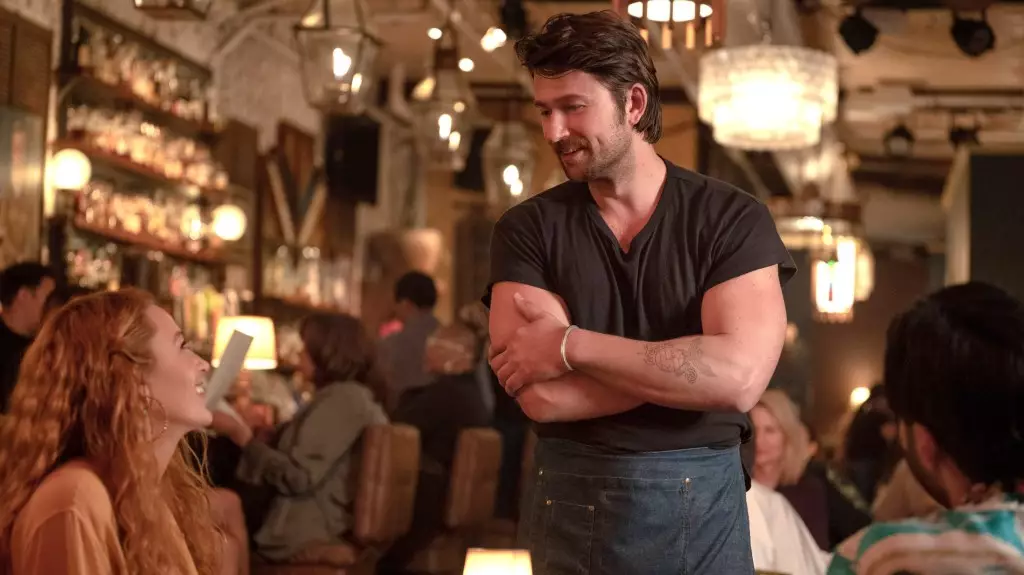The entertainment industry is no stranger to controversy, but recent events surrounding the production of “It Ends With Us” have amplified existing discussions about workplace safety, power dynamics, and the often-unexamined culture of silence that permeates Hollywood. The revelation of allegations against filmmaker and actor Justin Baldoni has sparked not only open discussions about misconduct but also prompted significant responses from industry peers, with many rallying behind co-star Blake Lively. Sklenar’s push for awareness amplifies the urgent need for a shift in how such issues are perceived and handled.
Brandon Sklenar has taken a bold step by urging audiences to read Blake Lively’s complaint, calling for a deeper understanding of the dynamics at play behind the scenes. By posting a screenshot of Lively’s allegations on social media, he utilized his platform to shine a light on the issue, demonstrating how collaborative solidarity can challenge existing norms. The phrase “FOR THE LOVE OF GOD READ THIS” captures the emotional intensity of his message, hinting at a desperate appeal for awareness in a sea of indifference. Sklenar’s actions illustrate a growing trend wherein men in the industry stand in solidarity with women, recognizing the importance of their voices and experiences.
Lively’s situation has prompted responses from various Hollywood figures, many of whom have publicly voiced their support. From actors in the “Sisterhood of the Traveling Pants” to industry veterans like Gwyneth Paltrow and Amy Schumer, the chorus of condemnation reflects a burgeoning collective consciousness around the issues of harassment and accountability. The swift actions taken against Baldoni, including his dismissal from his agency and rescinded awards, suggest that the industry is beginning to take allegations seriously in an era where public opinion has become a powerful force for change. This situation underscores a potential shift within Hollywood—a movement toward a more transparent and ethical framework, even if this shift is still in its infancy.
The 80-page complaint details a harrowing narrative that outlines Baldoni’s purported misconduct, including creating a hostile work environment. Descriptions of Baldoni’s behavior, such as the unsolicited addition of sex scenes and invasive actions like walking into Lively’s trailer, evoke a troubling picture of the imbalance of power that often exists in film sets. The inclusion of tactics like “astroturfing”—a deliberate attempt to mislead the public regarding the authenticity of support—only adds to the gravity of the allegations. The implications of these behaviors extend beyond Lively and influence discourse around workplace environments, particularly in creative industries where power disparities are prevalent.
The aftermath of Lively’s claims and the ensuing fallout force a reflection on cultural attitudes toward women in positions of vulnerability. As the industry grapples with these issues, it becomes increasingly apparent that support and solidarity can serve as catalysts for change. The response from actors like Sklenar emphasizes a break from traditional silence—a conscious choice to speak out against the disturbing implications of abuse of power. Meanwhile, figures like Amber Heard, drawing from her own experiences, contextualize the larger conversation about how social media can fuel destructive narratives and damage individuals already unfairly targeted.
The unfolding events surrounding “It Ends With Us” highlight a crucial moment in Hollywood’s historical narrative. From the revelations of misconduct to the solidarity displayed by actors and advocates, there emerges a collective desire for transformation within the entertainment industry. As audiences engage with this narrative, it is essential to recognize the importance of advocacy and support for affected individuals. The need is clear: the industry must cultivate an environment that not only prioritizes artistic expression but also respects the dignity and safety of all its participants. By championing this cause, stakeholders can encourage a movement toward transparency, accountability, and healing.


Leave a Reply